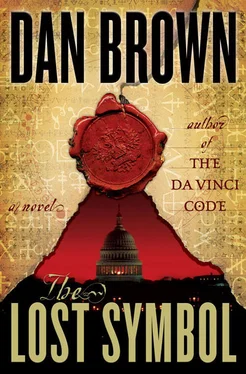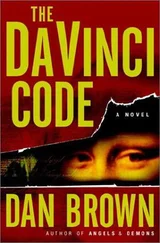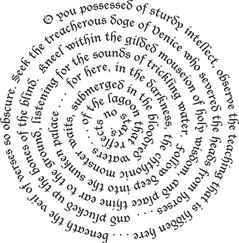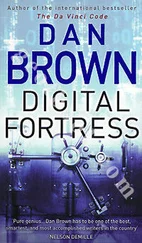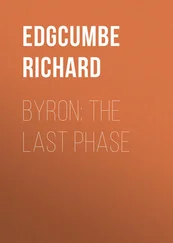Langdon gazed left, across the Tidal Basin, toward the gracefully rounded silhouette of the Jefferson Memorial — America’s Pantheon, as many called it. Directly in front of the car, the Lincoln Memorial rose with rigid austerity, its orthogonal lines reminiscent of Athens’s ancient Parthenon. But it was farther away that Langdon saw the city’s centerpiece — the same spire he had seen from the air. Its architectural inspiration was far, far older than the Romans or the Greeks.
America’s Egyptian obelisk.
The monolithic spire of the Washington Monument loomed dead ahead, illuminated against the sky like the majestic mast of a ship. From Langdon’s oblique angle, the obelisk appeared ungrounded tonight… swaying against the dreary sky as if on an unsteady sea. Langdon felt similarly ungrounded. His visit to Washington had been utterly unexpected. I woke up this morning anticipating a quiet Sunday at home… and now I’m a few minutes away from the U.S. Capitol.
This morning at four forty-five, Langdon had plunged into dead-calm water, beginning his day as he always did, swimming fifty laps in the deserted Harvard Pool. His physique was not quite what it had been in his college days as a water-polo all-American, but he was still lean and toned, respectable for a man in his forties. The only difference now was the amount of effort it took Langdon to keep it that way.
When Langdon arrived home around six, he began his morning ritual of hand-grinding Sumatra coffee beans and savoring the exotic scent that filled his kitchen. This morning, however, he was surprised to see the blinking red light on his voice-mail display. Who calls at six A.M. on a Sunday? He pressed the button and listened to the message.
“Good morning, Professor Langdon, I’m terribly sorry for this early-morning call.” The polite voice was noticeably hesitant, with a hint of a southern accent. “My name is Anthony Jelbart, and I’m Peter Solomon’s executive assistant. Mr. Solomon told me you’re an early riser… he has been trying to reach you this morning on short notice. As soon as you receive this message, would you be so kind as to call Peter directly? You probably have his new private line, but if not, it’s 202-329-5746.”
Langdon felt a sudden concern for his old friend. Peter Solomon was impeccably well-bred and courteous, and certainly not the kind of man to call at daybreak on a Sunday unless something was very wrong.
Langdon left his coffee half made and hurried toward his study to return the call.
I hope he’s okay.
Peter Solomon had been a friend, mentor, and, although only twelve years Langdon’s senior, a father figure to him ever since their first meeting at Princeton University. As a sophomore, Langdon had been required to attend an evening guest lecture by the well-known young historian and philanthropist. Solomon had spoken with a contagious passion, presenting a dazzling vision of semiotics and archetypal history that had sparked in Langdon what would later become his lifelong passion for symbols. It was not Peter Solomon’s brilliance, however, but the humility in his gentle gray eyes that had given Langdon the courage to write him a thank-you letter. The young sophomore had never dreamed that Peter Solomon, one of America’s wealthiest and most intriguing young intellectuals, would ever write back. But Solomon did. And it had been the beginning of a truly gratifying friendship.
A prominent academic whose quiet manner belied his powerful heritage, Peter Solomon came from the ultrawealthy Solomon family, whose names appeared on buildings and universities all over the nation. Like the Rothschilds in Europe, the surname Solomon had always carried the mystique of American royalty and success. Peter had inherited the mantle at a young age after the death of his father, and now, at fifty-eight, he had held numerous positions of power in his life. He currently served as the head of the Smithsonian Institution. Langdon occasionally ribbed Peter that the lone tarnish on his sterling pedigree was his diploma from a second-rate university — Yale.
Now, as Langdon entered his study, he was surprised to see that he had received a fax from Peter as well.
Peter Solomon
OFFICE OF THE SECRETARY
THE SMITHSONIAN INSTITUTION
Good morning, Robert,
I need to speak with you at once.
Please call me this morning as soon as you can at 202-329-5746.
Peter
Langdon immediately dialed the number, sitting down at his hand-carved oak desk to wait as the call went through.
“Office of Peter Solomon,” the familiar voice of the assistant answered. “This is Anthony. May I help you?”
“Hello, this is Robert Langdon. You left me a message earlier —”
“Yes, Professor Langdon!” The young man sounded relieved. “Thank you for calling back so quickly. Mr. Solomon is eager to speak to you. Let me tell him you’re on the line. May I put you on hold?”
“Of course.”
As Langdon waited for Solomon to get on the line, he gazed down at Peter’s name atop the Smithsonian letterhead and had to smile. Not many slackers in the Solomon clan. Peter’s ancestral tree burgeoned with the names of wealthy business magnates, influential politicians, and a number of distinguished scientists, some even fellows of London’s Royal Society. Solomon’s only living family member, his younger sister, Katherine, had apparently inherited the science gene, because she was now a leading figure in a new cutting-edge discipline called Noetic Science.
All Greek to me, Langdon thought, amused to recall Katherine’s unsuccessful attempt to explain Noetic Science to him at a party at her brother’s home last year. Langdon had listened carefully and then replied, “Sounds more like magic than science.”
Katherine winked playfully. “They’re closer than you think, Robert.”
Now Solomon’s assistant returned to the phone. “I’m sorry, Mr. Solomon is trying to get off a conference call. Things are a little chaotic here this morning.”
“That’s not a problem. I can easily call back.”
“Actually, he asked me to fill you in on his reason for contacting you, if you don’t mind?”
“Of course not.”
The assistant inhaled deeply. “As you probably know, Professor, every year here in Washington, the board of the Smithsonian hosts a private gala to thank our most generous supporters. Many of the country’s cultural elite attend.”
Langdon knew his own bank account had too few zeros to qualify him as culturally elite, but he wondered if maybe Solomon was going to invite him to attend nonetheless.
“This year, as is customary,” the assistant continued, “the dinner will be preceded by a keynote address. We’ve been lucky enough to secure the National Statuary Hall for that speech.”
The best room in all of D.C., Langdon thought, recalling a political lecture he had once attended in the dramatic semicircular hall. It was hard to forget five hundred folding chairs splayed in a perfect arc, surrounded by thirty-eight life-size statues, in a room that had once served as the nation’s original House of Representatives chamber.
“The problem is this,” the man said. “Our speaker has fallen ill and has just informed us she will be unable to give the address.” He paused awkwardly. “This means we are desperate for a replacement speaker. And Mr. Solomon is hoping you would consider filling in.”
Langdon did a double take. “Me?” This was not at all what he had expected. “I’m sure Peter could find a far better substitute.”
“You’re Mr. Solomon’s first choice, Professor, and you’re being much too modest. The institution’s guests would be thrilled to hear from you, and Mr. Solomon thought you could give the same lecture you gave on Bookspan TV a few years back? That way, you wouldn’t have to prepare a thing. He said your talk involved symbolism in the architecture of our nation’s capital — it sounds absolutely perfect for the venue.”
Читать дальше
